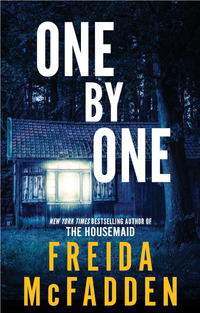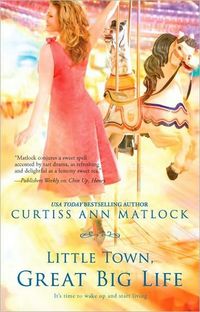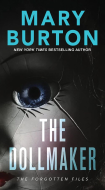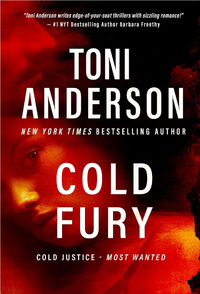 ONE BY ONE |
 Discover May's Best New Reads: Stories to Ignite Your Spring Days. |

Purchase
Valentine #8 Women's Fiction Excerpt of Little Town, Great Big Life by Curtiss Ann MatlockWinston Wakes Up the World In the early dark hour just before dawn, a lone figure—a man in slacks and wool sport coat, lapels pulled against the cold, carrying a duffel bag—walked along the black-topped ribbon of highway toward a town with a water tower lit up like a beacon. Just then a sound brought him looking around behind him. Headlights approached. The man hurried into the tall weeds and brush of the ditch. Crouching, he gazed at the darkness where his loafers were planted and hoped he did not get bit by something. A delivery truck of some sort went blowing past. As the red taillights grew small, the man returned to the highway. He brushed himself off and headed on toward the town. Another fifteen minutes of walking and he could make out writing on the water tower: the word Valentine, with a bright red heart. Farther along, he came to a welcome sign, all neatly landscaped and also lit with lights. He stopped, staring at the sign for some minutes. Welcome to Valentine, a Darn Good Place to Live! Underneath this was: Flag Town, U.S.A., Population 5,510 Friendly People and One Old Grump, 1995 Girls State Softball Championship, and Home of Brother Winston's Home Folks Show at 1550 on the Radio Dial Looking ahead, the man walked on with a bit of hope in his step. The man would not be disappointed. The welcome sign pretty much said it all. Like a thousand other small towns across the country, Valentine was a friendly town that was right proud of itself and had reason to be. It was a place where the red-white-and-blue flew on many a home all year through and not just on the Fourth of July (as well as lots of University of Oklahoma flags and Oklahoma State flags, the Confederate flag, the Oklahoma flag and various seasonal flags). Prayer continued to be offered up at the beginning of rodeos, high-school football games and commencements, and nobody had yet brought a lawsuit, nor feared one, either. Mail could still be delivered with simply a name, city and state on the envelope. It was a place where people knew one another, many since birth, and everyone helped his neighbor. Even most of those who might fuss and fight with one another could be counted on in an emergency. The few poor souls who could not be counted on eventually ended up moving away. It was safe to say that most of the real crime was committed by people passing through. This exempted crimes of passion, which did happen on a more or less infrequent basis and seemed connected with the hot-weather months. In the main, Valentine was the sort of small town about which a lot of sentimental stories are written and about which a lot of people who live in big cities dream, having the fantasy that once you moved there, all of your problems disappeared. This was not true, of course. As Winston Valentine, the self-appointed town oracle, often said, the problems of life—all the fear, greed, lust and jealousy, sickness and poverty—are connected to people, and are part of life on earth the world over. It was true, however, that in a place like Valentine getting through life's problems often was a little easier. In Valentine, a person could walk most everywhere he needed to go, or find someone willing to drive him, or have things come to him. The IGA grocery, Blaine's Drugstore, the Pizza Hut, the Main Street Café and even the Burger Barn provided delivery service, and for free to seniors or anyone with impaired health. Feeling blue could be counted as impaired health. When you needed to leave your car at the Texaco to have the oil changed or new tires put on, the manager, Larry Joe Darnell, or one of his helpers, would drive you home, or to work, and would even stop for you to pick up breakfast, lunch or your sister. When Margaret Wyatt's husband ran off and left her the sole support of her teenage son, people made certain to go to her for alterations, whether they needed them or not, and for a number of years every bride in town had Miss Margaret make her wedding and bridesmaids' dresses. It was a normal course of events in Valentine for neighbors to drop groceries on the front steps of those on hard times, and for extra to go into the church collection plates for certain families; small-town people knew about tax deductions. Yards got mowed, repairs made and overdue bills paid, often by that fellow Anonymous. And in Valentine, when an elderly man no longer had legs strong enough to walk the sidewalk, and got his driver's license revoked and his car taken away because of impudent daughters and meddlesome friends, he could still drive a riding lawn mower to get where he wanted to go. This good idea came to Winston Valentine after a fitful night's sleep in which he had dreamed of his long-dead wife, Coweta, and been left both yearning for her and relieved that her presence had only been a dream. Their marriage had been such a contrast, too. Now in his tenth decade, Winston was a man with enough experience to understand that life itself was constant contrasts. He lay with his head cradled in his hands on the pillow, studying this matter as he stared at the faint pattern caused by the shine of the streetlight on the wall, while from the other side of it came muffled sounds—creak of the bed, a laugh and then a moan. In the next room, the couple with whom he shared his house—Tate and Marilee Holloway—were doing what Winston had once enjoyed with his Coweta early of a morning. Remembering, Winston's spirits did a nosedive. He was long washed-up in that department. In fact, he was just about washed-up, period, as Coweta had put forth in the dream. He was ninety-two years old, and each morning he was a little surprised to wake up. That was his entire future: being surprised each morning to wake up. It was at that particular moment, when his spirits were so low as to be in the bottom of the rut, an idea came upon him with such delightful force that his eyes popped wide. A grin swept his face. "I'll show 'em. I ain't dead yet." His feet hit the cold floor with purpose. Holding to the bedpost, he straightened and stepped out quietly. Then, moving more quickly, he washed up and dressed smartly, as was his habit, in starched jeans and shirt, and an Irish sweater. Winston Valentine did not go around dressed "old," as he called it. After a minute's rest in the chair beside the bedroom door, he picked up his polished boots, stepped into the hall in sock feet and soundlessly closed the door behind him. He had forgotten his cane but would not turn back. The hallway was dimly lit by a small light. The only bedroom door open was that of Willie Lee. Winston automatically glanced inside, saw that the boy had thrown off the blankets. The little dog who lay at the foot of the bed lifted his head as Winston tiptoed into the room and gently pulled the blankets over the child, who slept the deep sleep of the pure in heart. When Winston left the room, the dog jumped down and followed soundlessly. Gnarled hand holding tight to the handrail, Winston descended the stairs, knowing where to step to avoid the worst creaks. He located the small key that hung on the old rolltop desk in the alcove. Then he went to the bench in the hall and tugged on his boots. Seeing the dog watching, he whispered, "Go on back up." The dog remained sitting, regarding him with a definite air of disapproval. "Mr. Munro, you just keep your opinions to yourself." Winston slipped into his coat and settled his felt Resistol on his head. The dog still sat looking at him. Winston went out into the crisp morning, closing the door on the dog, who turned and raced back down the hall and up the stairs, hopped onto the boy's bed and over to peer through the window. His wet canine nose smeared fog on the glass. The old man came into view on the walkway, then disappeared through the small door of the garage. Munro's amber eyes remained fastened on the garage. His ears pricked at the faint sound of an engine. The small collie who lived next door came racing to the fence, barking his head off. Munro regarded such stupid action with disdain. Moments later, a familiar green-and-yellow lawn mower came into view on the street, with the old man in the seat. Munro watched until machine and old man passed out of sight behind the big cedar tree in the neighbor's yard. The sound faded, the stupid collie lay down and Munro reluctantly lay down on the bed. All was quiet. Winston headed the lawn tractor along the street. The cold wind stung his nostrils, bit his bare hands, but his spirits soared. He imagined people in the houses hearing the mower engine and coming to their windows to look out. Halfway along the street, it came to him, as he noted the limbs of a redbud tree that had just begun to sprout, that only the calendar said spring. The morning was yet cold and everyone's house shut up tight. No one was going to hear him racing along the street. Crossing the intersection with Porter Street, he hit a bump and had to grasp the steering wheel to keep from bouncing off the seat. He saw the newspaper headlines: Elderly Man Ends Life Plowing Mower into Telephone Pole. But he was not about to downshift like some old candy-ass. He kept his foot on the pedal and tightened his grip on the steering wheel. He wished he had thought of gloves. He did slow when he came alongside the sheriff's office at the corner of Church and Main streets. Maybe Sheriff Oakes was in this morning. No one came to the door, though. Driving down the middle of the empty highway, he was forced to slow a little. His hands were growing weak on the wheel, the old arthritis getting the best of him. He turned onto graveled Radio Lane and bounced along until he finally came to a stop outside the door of the concrete-block building beside Jim Rainwater's black lowrider Chevrolet. He had made it. And in all the distance traveled, nearly two miles, he had encountered no other person or vehicle. It was a deep disappointment. He got himself off the mower, and was glad to have no witnesses. He moved like the rusted-up Tin Man... Excerpt from Little Town, Great Big Life by Curtiss Ann Matlock |
|
| |||
|
||||



 © 2003-2024
© 2003-2024